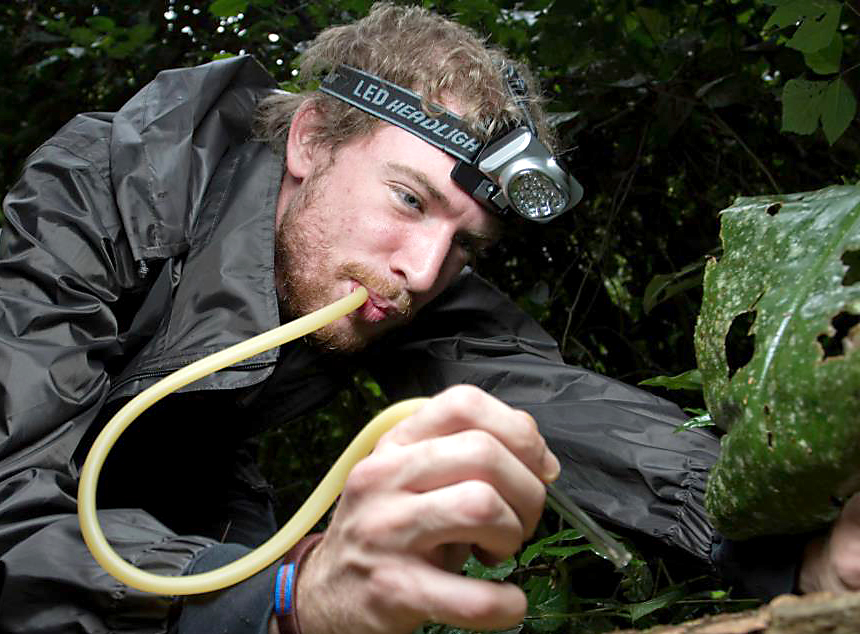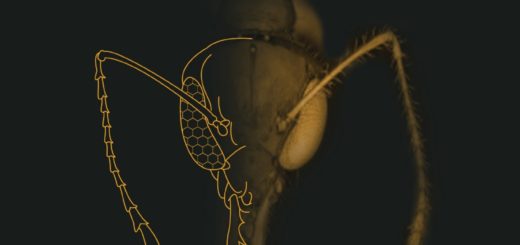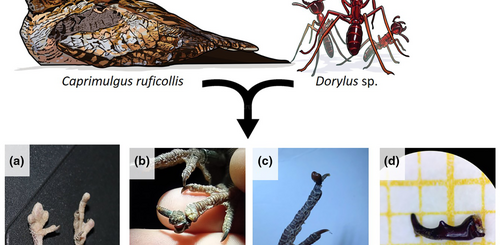Doing an ant PostDoc: Antoine Felden

© Constance Brukin from CSHL
Antoine Felden is a 29-year old myrmecologist from France. He started his biology courses in Strasbourg (France) and started to get involved with ant research during his first undergraduate year in 2009 in Lausanne (Switzerland). From there, he hopped from ant lab to ant lab as a research intern, including projects in Berkeley (California) and Toulouse (France), where he settled for a bit to complete his MSc in Animal Behaviour. After that, he started his PhD in Wellington (New Zealand), completed it in 2018, and carried on with a PostDoc position in the same lab. He is interested in many aspects of ant biology, from genomics to behavioural ecology, and currently uses a variety of techniques to investigate immunity in Argentine ants. In this interview, we talk about his PostDoc in Wellington.
Interview compiled by Patrick Krapf 
MNB: What is the topic of your thesis?
AF: I study how successive introductions of the Argentine ant all over the world may have affected their behaviour or other factors that could further facilitate their invasion success.
MNB: In which year of your research studies are you now?
AF: I just finished my PhD after three and a half years and was luckily offered to carry on with a PostDoc position in the same lab.
MNB: Why ants?
AF: As far as everyone remembers in my family, I’ve been looking at ants. I think seeing fully functional little societies that resemble ours so much sparked my interest, and that fascination remains intact to this day.
MNB: How do you feel about field work?
AF: Argentine ant field work often ends up in derelict corners or dodgy parks. It’s not as nice as the jungle, but at least there’s always a café in the vicinity.

Collecting ants at the Ant Course in Kibale National Park, Uganda in 2012. © Alex Wild
MNB: … about identifying ants using a key?
AF: Sometimes, you have to do what you have to do.
MNB: … working in the wet lab?
AF: The outcome fascinates me. I hate the process.
MNB: Have you been involved in any of the -omics approaches, and what was your experience?
AF: I do transcriptomics. It was undeniably hard at first, but my own progression and the research possibilities it opens are incredibly rewarding.
MNB: Did you acquire your statistics knowledge in university courses, from your supervisor, or on your own?
AF: All of the above! Although I have to say, struggling with basic R stuff during my undergrad played a big part in what I’m able to do today.
MNB: What is the ideal frequency of meeting your supervisor for discussing your research from your point of view: daily, weekly, monthly?
AF: Weekly meetings are the way to go.
MNB: Do you like discussing ideas or problems with fellow PhD students or PostDocs?
AF: Of course, peers are one determining factor in how a PhD goes.
MNB: How many papers do you read in an average week?
AF: As a gross meaningless estimate, I divided the number of papers in my thesis bibliography by the number of weeks I worked on my PhD, which is about three papers a week.

Ants being set up for individual CHC discrimination assays in Berkeley, California in 2010. © Antoine Felden
MNB: In an ideal world, is the working group you belong to small or large?
AF: 6-8 people.
MNB: And ideally, is your uni close to your field-work site or in an urban area?
AF: Both. But that’s easy, whether it’s in Toulouse, Buenos Aires, the Bay, Melbourne or Wellington, Argentine ants are always on campus with me.
MNB: Have you benefited more from attending conferences with narrower or with broader scope?
AF: I’d never miss an IUSSI meeting, but special mention to the Genomics of Social Insects meeting at Cold Spring Harbor, which brings in the best of both fields. We are a small community, that’s why social insects meetings are always amazing and are a must-do.
MNB: What is most relevant to you at a conference: attending talks, giving a talk, meeting senior scientists, meeting other students?
AF: As I said above, the social insects community is great, and meeting other nerds as well as those who make a living out of it is always a good time.
MNB: Did you ever participate in a science slam and if so, would you do it again?
AF: I’ve never done such a thing, but it sounds cool.
MNB: If you would get 100,000 Dollars to spend for your research project, what would you do with it?
AF: I would make my project even more integrative. From transcriptomic and behaviour, I’d look at the genome next. Population genomics, adaptation genomics, there’s so much to investigate.
MNB: How do you celebrate successes like getting a paper accepted, a proposal granted, or the like?
AF: I celebrate life every day; it’s hard to surpass that. I just keep calm and carry on.
MNB: What is your personal trick to get over periods of low(er) motivation?
AF: There is a circle to break here: Low motivation kills productivity, low productivity kills motivation. So I just step back, realise that a few hours or days are nothing in the great scheme of things, and get back at it.
MNB: What is the one thing you would do differently when starting your PhD thesis again?
AF: I’m done, I don’t want to think about that ever again.
MNB: Would you like to stay in science?
AF: I don’t have anywhere else to go.

Counting ants in Buenos Aires, Argentina, in 2015. © Carolina Paris
MNB: If you will be supervising PhD students yourself one day, what will be the most important thing you will expect from your students?
AF: To tell me everything I need to know to be able to help them. And to publish a lot of papers.
MNB: … and what will be the most important thing you will want to take care of in supervising?
AF: To provide a safe environment where things can be discussed freely.
MNB: Original article or review article?
AF: Original article.
MNB: Reading or writing?
AF: Writing.
MNB: Writing or reviewing?
AF: Writing.
MNB: Table or figure?
AF: Figure.
MNB: Web of Science or Google Scholar?
AF: Google Scholar.
MNB: Windows, OS, or Linux?
AF: Not Windows.
MNB: Command-line or graphical-user interface?
AF: Depends on the task!
MNB: Mouse or touchpad?
AF: Mice.
MNB: Facebook or Twitter?
AF: None.
MNB: Bus or bike?
AF: Bike.
MNB: Sun or rain?
AF: Sun.
MNB: Diploid or haploid?
AF: Haplodiploid.
MNB: Sting or acid?
AF: Acid, definitely.
MNB: Social parasite or host?
AF: Social parasite.
MNB: Your favourite ant?
AF: Formica.
MNB: Thank you so much for this interview. I wish you all the best.





Recent Comments